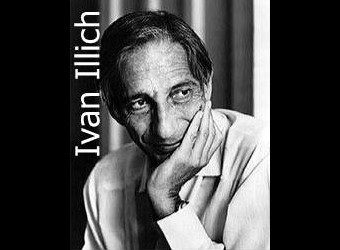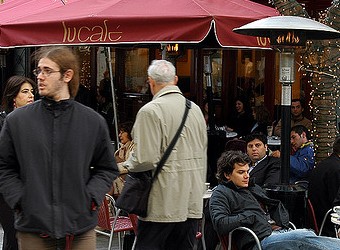An astute observer has raised the issue that Crossroads Mall in Bellevue, Washington, praised in an On the Commons posting of mine, is not truly a public space because, as a private establishment, it has the legal right to exclude people, unlike in a city park or community rec center.
That’s absolutely true. A mall, even one with a social mission like Crossroads in Bellevue, Washington, is not the ideal public space. Even though the ethic of the place is quite inclusive, it is still private. Crossroads, however, could prove an interesting case. Since there are public institutions in the Mall, like a library and a branch of city hall it could be possible that the managers have fewer rights in restricting people. I am not sure. Would anti-war protesters, or even Neo-Nazis, have the right to circulate petitions outside the door of the city hall just as they would with one on Main Street? I am not sure.
I mentioned Crossroads not as a perfect example of a public space but as an example of how a place, which would at first glance seem hostile to the very idea of public space, can become a community gathering spot. Even a ’70s shopping mall in the Microsoft suburbs of Seattle surrounded by a parking lot, can serve some of the important function of a public space.
That does not discount the importance of parks, sidewalks, playgrounds, community centers, squares, libraries, public buildings, and other truly public places. A civic-minded mall should be an enhancement to these public spaces, not a substitute. Sadly, it is true that authentic public spaces are often less common and less well-used in suburban communities and other spots that place a high premium on privacy and high security.
But the cultural and civic life of a community is frequently boosted by the existence of private establishments such as coffee shops, taverns, bowling alleys, book stores, cafes, union halls, churches, temples, synagogues, music clubs, record shops, bodegas, amusements parks, diners, barber and beauty shops (a standby in many African-American neighborhoods).
It’s hard to think of the Beat movement in ’50s and ’60s San Francisco without Vesuvio’s Bar and Caffe Trieste. Or the New York literary world in the ’70s without Elaine’s. Or community life on college campuses today without pubs and coffee shops. Or life in an urban neighborhood in Milwaukee or Pittsburgh or San Antonio without the corner bar. These are all private establishments that play a semi-public role. I like the way the English acknowledge this with the name they use for pub owners and managers: Publicans.
It would be a great world if everyone thought of themselves as Publicans, looking for ways to promote public life – even in private establishments. Public life is not a zero-sum game. I think the more public life that exists in private places, the more people will insist on strong public places too, where they can engage with one another as citizens, neighbors, friends, etc.






.JPG%EF%B9%96itok=sAxCkUD_.jpeg)